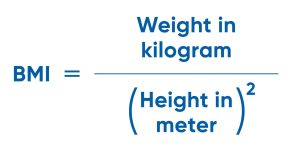BMI Calculator – Calculate Your Body Mass Index
Body Mass Index (BMI) is a widely used tool to assess whether an individual’s weight falls within a healthy range relative to their height. It provides a simple numeric indicator of a person’s body fatness and is often used as a screening tool for health risks associated with being underweight, overweight, or obese. Understanding BMI and how to use a BMI calculator can empower individuals to make informed decisions about their health and well-being.
What is BMI?
BMI is calculated by dividing a person’s weight in kilograms by the square of their height in meters. The formula is expressed as:
BMI=weight/height^2

The resulting number categorizes individuals into different BMI ranges:
- Underweight: BMI less than 18.5
- Normal weight: BMI between 18.5 and 24.9
- Overweight: BMI between 25 and 29.9
- Obesity: BMI of 30 or higher
It’s important to note that while BMI is a useful screening tool, it does have limitations. For example, it doesn’t differentiate between weight from muscle versus fat, nor does it account for factors like age, gender, or muscle mass distribution.
Using a BMI Calculator
BMI calculators are readily available online and in the form of mobile apps. Using a BMI calculator is a straightforward process:
Enter Your Height: Input your height into the designated field. Typically, height is entered in feet and inches or in meters.
Enter Your Weight: Input your weight into the designated field. Weight is usually entered in pounds or kilograms.
Calculate BMI: Once you’ve entered your height and weight, the BMI calculator will automatically compute your BMI and display the result.
Interpret the Result: After calculating your BMI, compare it to the standard BMI ranges mentioned earlier to determine where you fall on the BMI spectrum.
BMI Calculator
Interpreting BMI Results
Underweight: A BMI below 18.5 indicates that you may be underweight, which could pose health risks such as nutrient deficiencies and weakened immune function.
Normal Weight: Falling within the BMI range of 18.5 to 24.9 suggests that your weight is generally considered healthy for your height.
Overweight: A BMI between 25 and 29.9 indicates that you may be overweight, which can increase the risk of various health conditions such as heart disease, diabetes, and certain cancers.
Obesity: A BMI of 30 or higher suggests that you may be obese, which significantly increases the risk of developing serious health problems, including cardiovascular disease, stroke, and type 2 diabetes.
Using BMI for Health Monitoring
BMI can serve as a useful tool for monitoring changes in weight and overall health over time. By periodically calculating your BMI and tracking any fluctuations, you can identify trends and take proactive steps to maintain a healthy weight.
BMI calculators offer a convenient way to assess whether your weight falls within a healthy range relative to your height. By understanding how to use a BMI calculator and interpreting the results, individuals can gain valuable insights into their overall health and take proactive steps to maintain or improve their well-being. However, it’s essential to remember that BMI is just one of many factors to consider when evaluating health, and consulting with a healthcare professional for personalized advice is always recommended.
